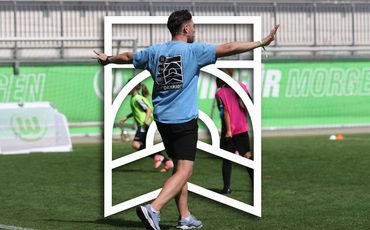Why Do Children Join and Stay in Sport?
Understanding why children get involved in sport—and why they stick with it—is essential for coaches, teachers, and parents who want to create positive, lasting experiences. In 2013, Professor Richard Bailey and colleagues conducted a comprehensive review of the evidence on this topic. Their findings highlight five key factors that influence children’s participation in sport: fun and enjoyment, feeling competent, learning new skills, being with friends, and the attitude of parents or guardians.
1. Fun and Enjoyment
Above all, children play sport because it’s fun. Sport is a form of play, and children are naturally drawn to playful experiences. Coaches who embrace this can become “fun makers” by incorporating playground games, using imaginative storytelling, giving drills quirky names, and running mini competitions. On the flip side, “fun killers” include long-winded explanations, repetitive drills, and too much waiting around. Keeping sessions lively and engaging is crucial to maintaining interest.
2. Feeling Competent
Children are more likely to stay in sport when they feel capable. If tasks are too difficult or progress is too slow, frustration and boredom can set in quickly. Coaches should aim to pitch activities at the right level—challenging but achievable—so that children feel a sense of accomplishment. Feeling competent builds confidence and motivation, making it more likely that children will return week after week.
3. Learning New Skills
Children love learning. Just like in video games, where mastering a new level brings excitement, sport can offer that same sense of progress. Coaches should design sessions that allow children to see their improvement and celebrate their achievements. Making learning visible and rewarding helps keep children engaged and eager to come back.
4. Being with Friends
Social connection is a powerful motivator. Many children join sport to be with their friends—or to make new ones. Coaches should allow time for interaction, even if it means tolerating a bit of chatter or distraction. Encouraging teamwork and mixing up pairings in drills can help children build new friendships and feel part of a community.
5. Attitude of Parents and Guardians
Parents and guardians play a significant role in shaping children’s sporting experiences. Those who model positive behaviours—such as good sportsmanship, encouragement, and unconditional support—help foster a healthy attitude toward sport. Children are more likely to stay involved when they feel supported, not pressured, by the adults in their lives.
Final Thoughts
Creating an environment where children want to stay in sport isn’t about pushing them harder—it’s about making sport enjoyable, inclusive, and rewarding. By focusing on fun, skill development, social connection, and supportive relationships, we can help children build a lifelong love of sport.
Watch the full video below
Comments
Related Pages



Every completed task or new skill learned brings satisfaction to children and a strong positive charge.